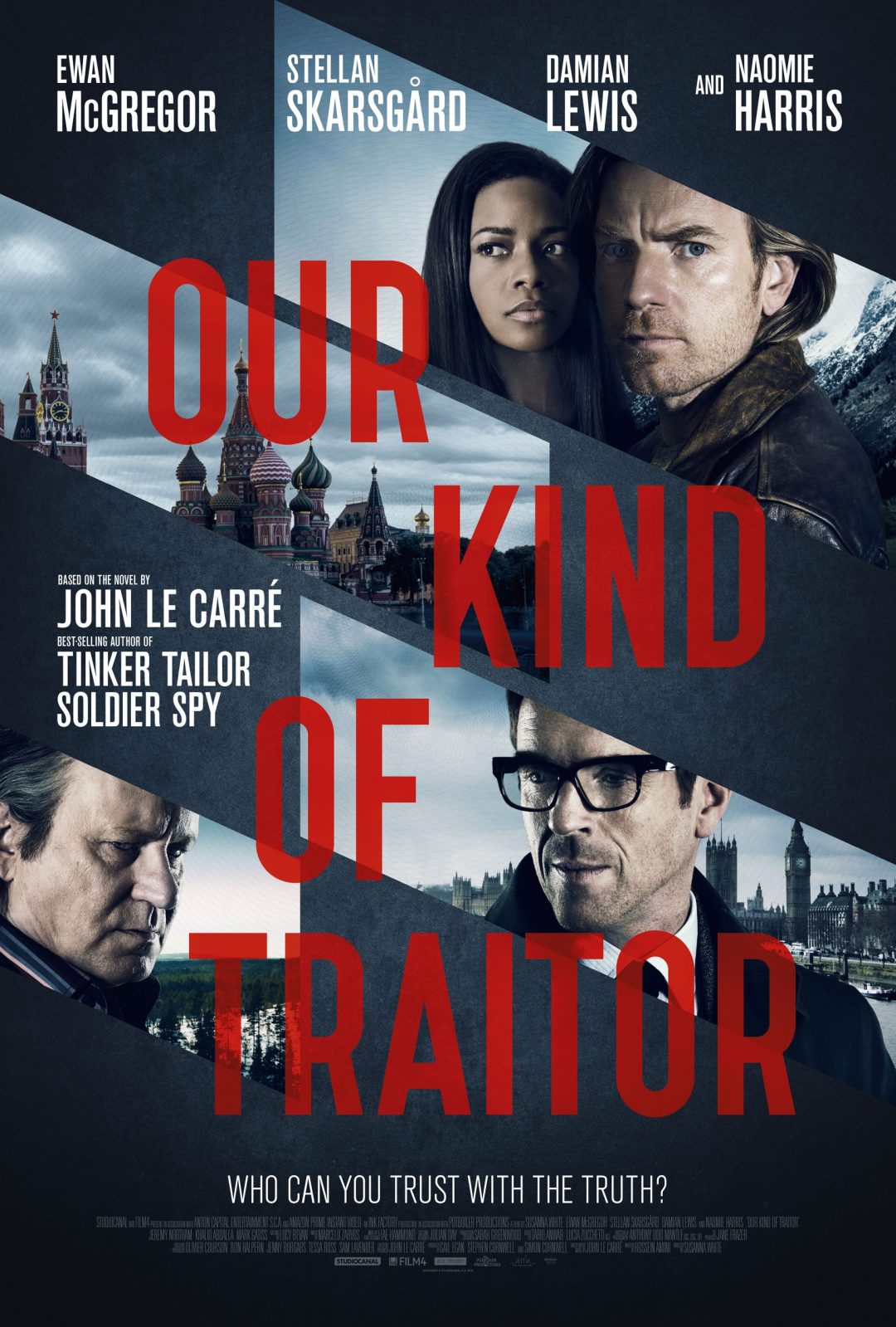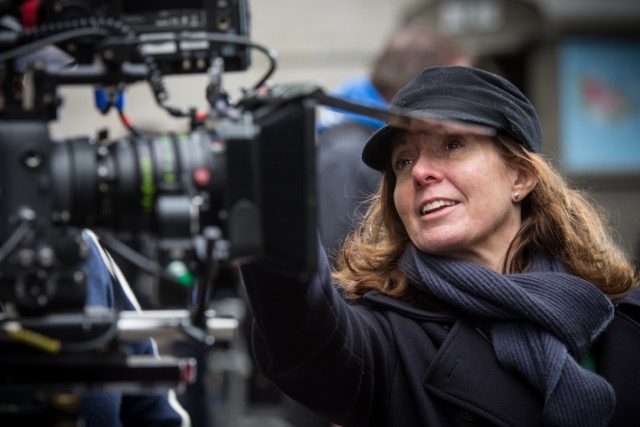Interview with director Susanna White
With the upcoming release of Our Kind of Traitor, we talk to the film's director Susanna White about her career so far, what inspires her, how she copes with work and family life and moving forward in an industry that is still very much male-dominated.

What inspired you to follow a career in film directing?
When I was about seven, my father took me to see Dr Doolittle at the Odeon Marble Arch. I was filled with wonder at how you could step off the pavement and your world be transformed into a journey around the world with Rex Harrison where animals talked and you could travel inside a Great Pink Sea Snail. Cinema felt like magic.
About a year later, my local Brownie pack went on an outing to BBC Television Centre to see Crackerjack being recorded. While the other Brownies were trying to get up on stage to win prizes, I remember being fascinated by the red light coming on, on a camera and that shot coming up on a monitor. I could see the mechanics of how films were made. I begged my parents to buy me a Super 8 camera, borrowed books from the local library on film making and I was off!
Did you set out with a vision of what you hoped to achieve by a certain age? How did the reality compare? How did you cope with the low times – did you ever want to give up?
I don’t think I was as structured as that. I just wanted to do it. I certainly found it hard, after returning from film school in California, to break into the industry here. I was finally given a break making documentaries at the BBC. After about 10 years doing that, I managed to move across into drama.
There have certainly been times I have found the uncertainty of the industry tough and the difficulty of moving from documentary into drama and from television drama into feature films was challenging. I never seriously thought about giving up though – it is too much in my DNA.
Much has been said about the male-dominated movie industry – how important is it to you that more women get involved behind the cameras in Hollywood?
Apart from the obvious point about equal opportunities – that it seems crazy in 2016 it is six times more likely that a man will get to direct a feature film than a woman – we, as a society are losing out creatively on a whole talent pool of really gifted people. Cinema is hugely influential on us from a really young age. As the Geena Davis Institute has pointed out, children’s films are still far more likely to feature male characters than female and there is a huge shortage of decent roles for women on screen (the balance of male to female characters hasn’t shifted since 1946).
A director’s role covers everything from overseeing the script to deciding which extras are in a scene. While no 10 directors will make the same film from a script it seems natural that female directors would be interested in giving female characters more of a voice. Cinema reflects our society back at as. I think a fairer gender split amongst directors would see a shift in the stories told on screen in a really interesting way.
You were lauded in the UK and won a Bafta for directing the BBC adaptations of Bleak House and Jane Eyre, but weren’t given the opportunity to direct films until you went to the States and directed the very ‘male’ Generation Kill, about US Marines leading the assault on Baghdad in 2003. Does that frustrate you, that you had to ‘prove’ yourself to the British film industry in that way?
For an industry that one would expect to be forward-looking, the film industry, not just in the UK but around the world, is quite risk-averse – it tends to hire directors who are like the ones who have gone before, and the vast majority of those who have gone before are men. I understand why financiers are cautious, there is often a lot of money at stake, but being given the opportunity to direct Generation Kill gave me a skill set that is hard for many women to acquire – experience in directing action and in CGI.
Even if you are one of the lucky women who gets to direct a feature film, there is still an element of gender stereotyping – my first film was a family film, Nanny McPhee Returns – not an obvious move after Generation Kill. This is a pattern we see – the wonderful BAFTA-winning television director Philippa Lowthorpe just got to make her first feature film at a similar age to me and it is Swallows and Amazons. My latest film, Our Kind of Traitor, a spy thriller, is in a genre where only around 3% of directors are women.

It’s taken you a long time to gain the recognition you deserve. How do you feel now, having reached that point?
It is incredibly hard for anyone, a man or a woman, to become a film director and I feel very lucky to have achieved that dream. My other dream was to have children and I am lucky enough to have two talented and beautiful daughters and be supported by a great husband.
After directing Nanny McPhee Returns which you’ve said was “emotional and reminded you of The Railway Children… a film the whole family can share”, how does your latest project, the John le Carré thriller Our Kind Of Traitor, compare? Do you prefer directing fastpaced thrillers or more emotional stories?
My work has always been very writer-driven and I am lucky enough to have worked with incredible people from Tom Stoppard to David Simon. On Our Kind of Traitor I collaborated with the talented writer Hossein Amini. The directors I admire most, like Ang Lee and Billy Wilder move across genres and that is something I have enjoyed doing. Having said that, it was great to make a film with adult subject matter – the challenges of a modern marriage and the theme of financial corruption.
I’m really looking forward to my next film which is a big emotional story – the true story of the relationship between a New York portrait painter and the Native American leader Sitting Bull in the 1880s. Jessica Chastain is attached to star and I am really excited at the prospect of working with her on the story of such a remarkable woman.
How do you cope with the creative process? If actors have a different way of seeing the story and their characters, how do you negotiate that to get the result you feel is right?
One of the joys of my job is that every actor is different and needs different support in order to achieve their best work. Generally, I really enjoy the process of collaboration both with actors and the rest of the crew. If an actor has a very different idea from me of how to approach a role, I try to iron that out before we ever get as far as the film set.
It can be hard to be a career woman and still find time for family life – how do you find a balance?
Film-making for me is very much a vocation. I am not someone who spends a lot of time at parties or on the celebrity circuit – that’s the bit I cut out to make time for home life. When I’m not working, I try to spend as much time as I can with my family. The hardest aspect of the job is its unpredictability. When I was offered Jane Eyre, I was told that I had the job on the Friday and asked to go to Derbyshire for three months the following Monday. That was tough with seven-year-old twins. Luckily, I have a hugely supportive family around me.
Our Kind of Traitor is out on general release from Friday. Read Cut Out Of The Picture: A study of gender inequality amongst film directors in the UK film industry here






